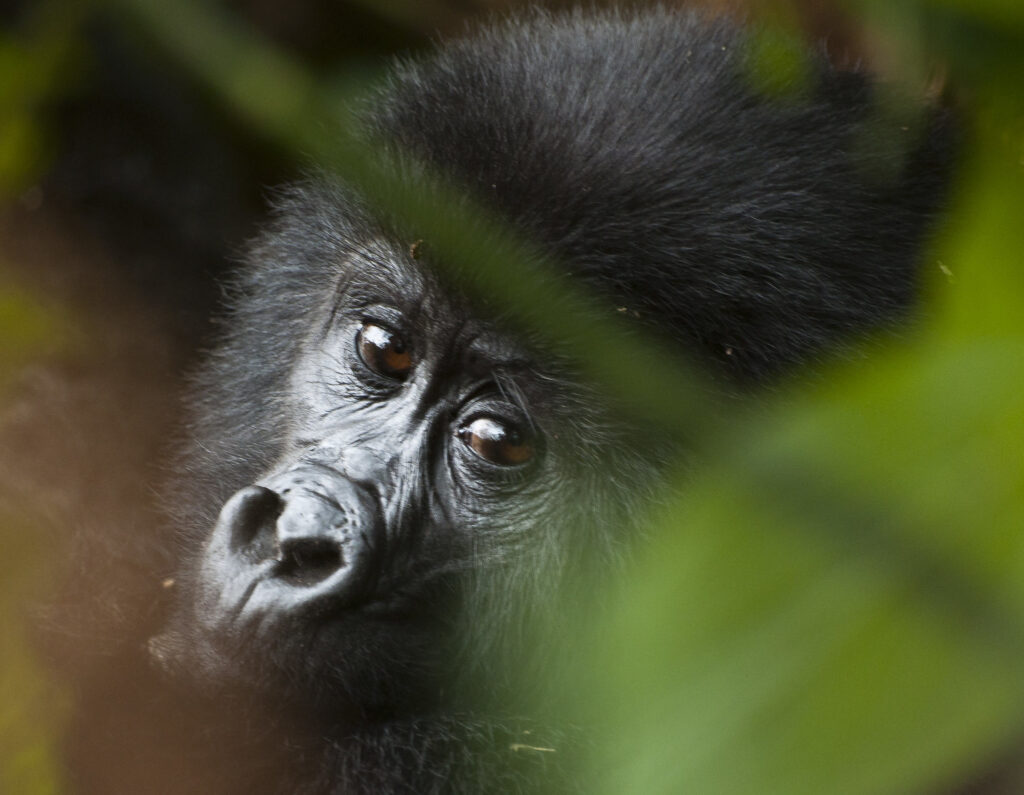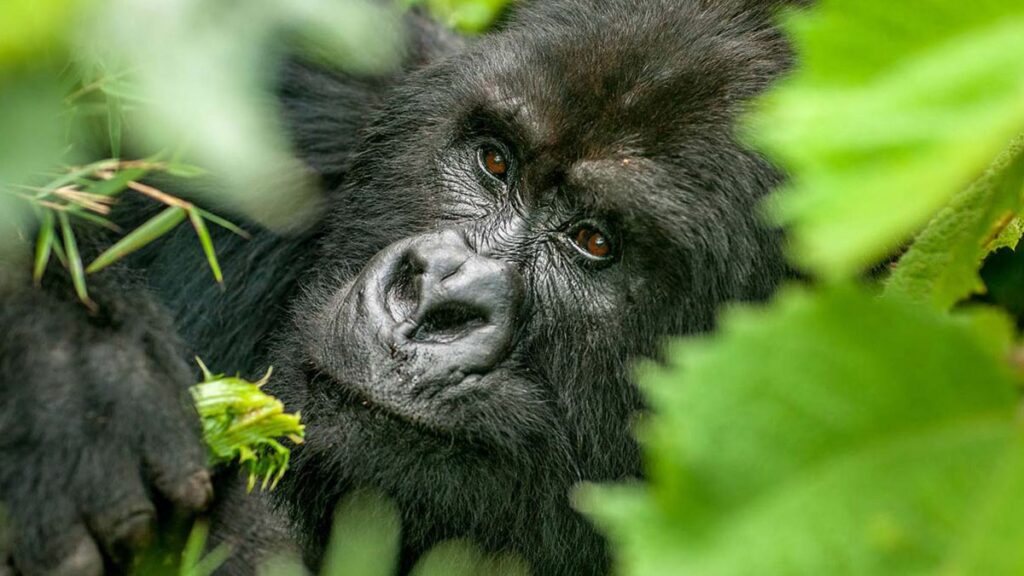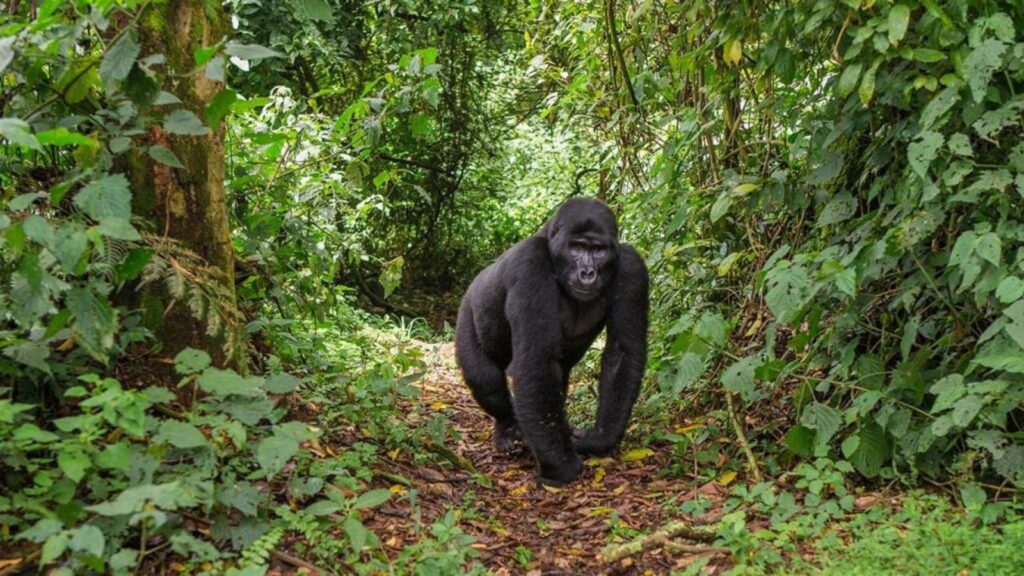What to Expect in Terms of Food and Service on a Safari.
Safari Food and Service. A safari in Africa isn’t just about wildlife — it’s also about the comfort, flavors, and warm hospitality that make each day unforgettable. Whether you’re staying at a luxury lodge in Bwindi, a mid-range camp near Volcanoes National Park, or a rustic eco-lodge in Virunga, food and service play a central role in the experience.
Here’s what you can expect when dining and staying at lodges across East and Central Africa’s gorilla and wildlife destinations.
The Dining Experience on Safari
Meals with a View
Most safari lodges are built to blend with nature. Meals are served on open terraces, under thatched roofs, or around campfires overlooking forests, lakes, or savannahs. At dawn, you might enjoy fresh coffee while mist rolls over the hills. At night, dinner comes with candlelight and the sounds of the wild.
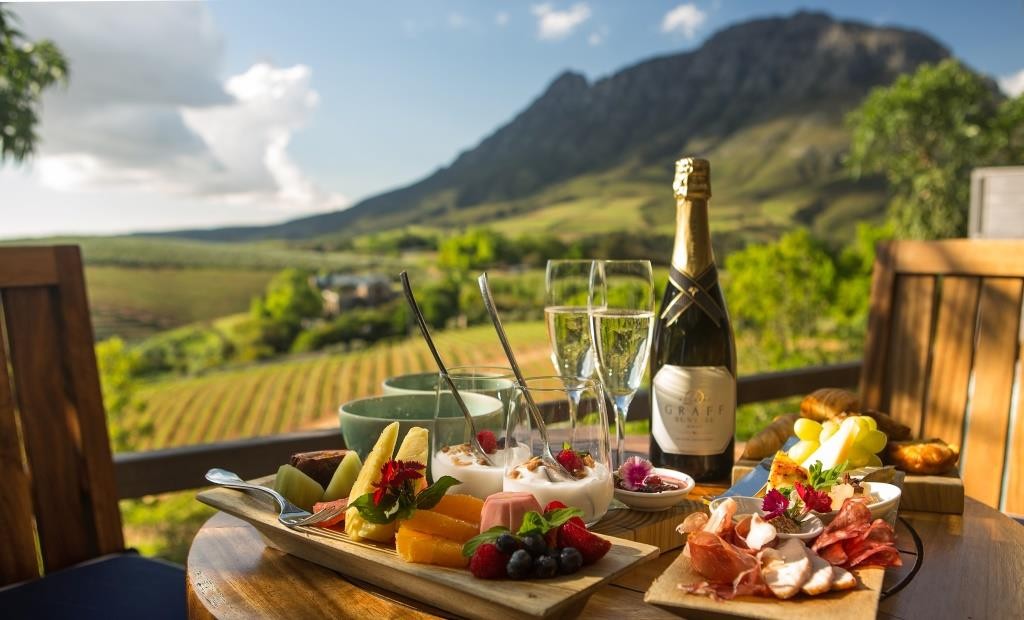
Meal Structure
Lodges usually offer three full meals per day:
Breakfast: A hearty start with fruits, cereals, eggs, pastries, and freshly brewed African coffee or tea.
Lunch: Often light — soups, salads, grilled fish, or pasta dishes.
Dinner: A multi-course experience with local and international cuisine, served by attentive staff.
Between meals, you’ll find snack stops and tea breaks, especially after trekking or game drives.
Variety and Culinary Influence
Local and International Fusion
Safari kitchens combine African ingredients with global recipes. You’ll taste:
Ugandan staples like matoke (plantain), groundnut sauce, and tilapia from Lake Victoria.
Rwandan specialties such as brochettes, fresh fruit platters, and Ruhengeri-grown coffee.
Congolese dishes featuring cassava, grilled goat, and spiced beans.
Many chefs are trained in international hospitality schools, offering Western, Asian, and vegetarian options alongside local favorites.
Fresh and Organic Ingredients
Because most lodges are far from cities, they rely on local farms and community cooperatives. Vegetables, fruits, and herbs are often grown in on-site organic gardens. Meat and dairy are sourced from nearby villages. This not only ensures freshness but also supports local livelihoods.
Dietary Preferences and Special Requests
Lodges in Uganda, Rwanda, and Congo cater to diverse travelers. Common dietary options include:
Vegetarian and vegan menus.
Gluten-free or dairy-free alternatives.
Halal or kosher preparations upon request.
When booking, inform your operator or lodge of your dietary needs at least two weeks before arrival. Staff customize menus to match your preferences without compromising quality.
Drinks and Bar Service
Beverages Included
Most mid-range and luxury lodges provide complimentary tea, coffee, and drinking water throughout the day. Water is filtered or bottled for safety.
Alcoholic Beverages
Bars serve a wide selection of local and imported drinks. You can enjoy:
Cold local beers such as Nile Special (Uganda) or Primus (Rwanda/Congo).
South African and Chilean wines.
Classic spirits and cocktails made with tropical fruit.
Some lodges include drinks in their nightly rate, while others charge separately. Always confirm inclusions when booking.
Service Standards and Lodge Staff
Personalized Hospitality
Safari lodges pride themselves on warm, genuine service. Staff often know guests by name and remember small preferences — from how you take your tea to when you prefer breakfast.
Room Service and Turndown
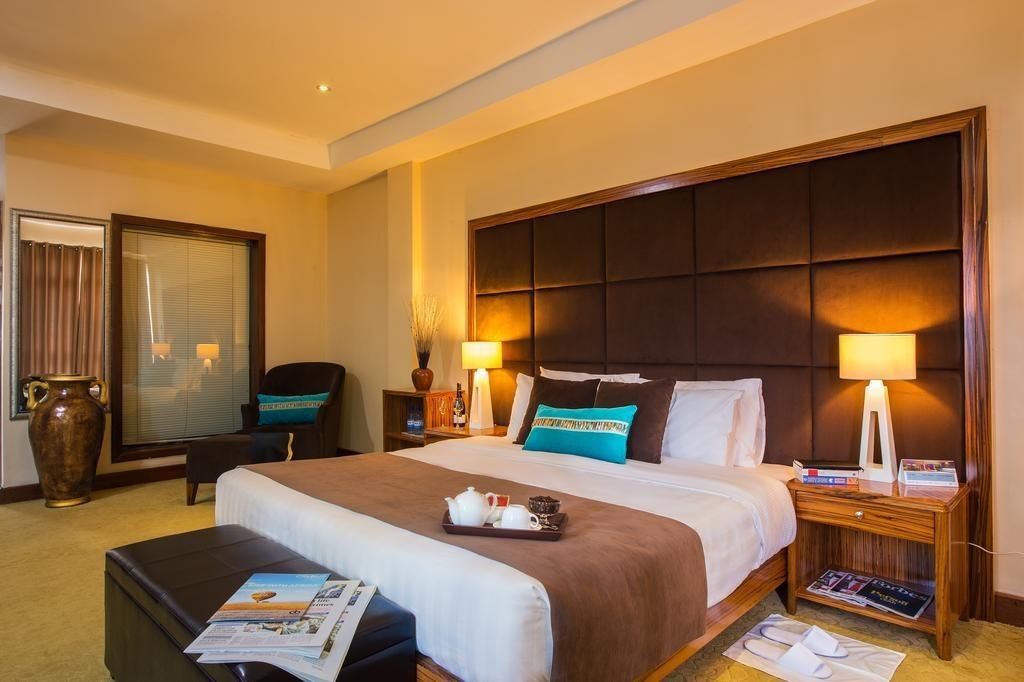
At higher-end lodges, you can expect daily housekeeping, turndown service, and evening room checks to ensure comfort and safety.
Mid-range lodges focus on personalized attention — with staff helping to light your fireplace, carry luggage, or provide hot water for early morning showers.
Guiding and Guest Assistance
Your lodge guide or host often becomes part of your journey — arranging transfers, scheduling treks, and sharing local insights. This personalized service is one of the hallmarks of African hospitality.
Eco-Friendly Dining and Responsible Service
- Many eco-lodges now follow sustainable hospitality practices to protect their surroundings. You’ll notice:
- Use of solar power for kitchens and water heating.
- Plastic-free operations with refillable water bottles.
- Composting and recycling systems.
- Locally trained staff and community partnerships.
Dining in such lodges is both an indulgence and an act of conservation; every meal contributes to preserving the rainforest and supporting local families.
Cultural Connection Through Food
Meals in the rainforest are more than nourishment they’re storytelling moments. Many lodges invite guests to experience cultural dinners, featuring:
- Traditional Rwandan or Ugandan dance performances.
- Local cooking demonstrations.
- Farm-to-table dining experiences.
These encounters deepen your connection with the region and turn dining into a cultural exchange.
What to Expect During Special Moments
Packed Lunches and Trekking Meals
On gorilla trekking days, lodges prepare packed lunches with sandwiches, fruits, boiled eggs, and snacks for the trail.
Private Dining
Couples and honeymooners can request private dinners by the fire or overlooking the forest — a highlight of luxury stays.
Community Dinners
At community lodges, meals are shared with hosts. You’ll dine together, exchange stories, and support local initiatives.
Plan Your Safari Stay the Right Way
Great food and warm service are as much a part of the safari as seeing gorillas or lions. Each meal celebrates local culture, fresh ingredients, and heartfelt hospitality.
When you book with Gorilla-Permits.com, our team recommends lodges that balance comfort, cuisine, and sustainability ensuring your safari experience is as flavorful as it is unforgettable.

